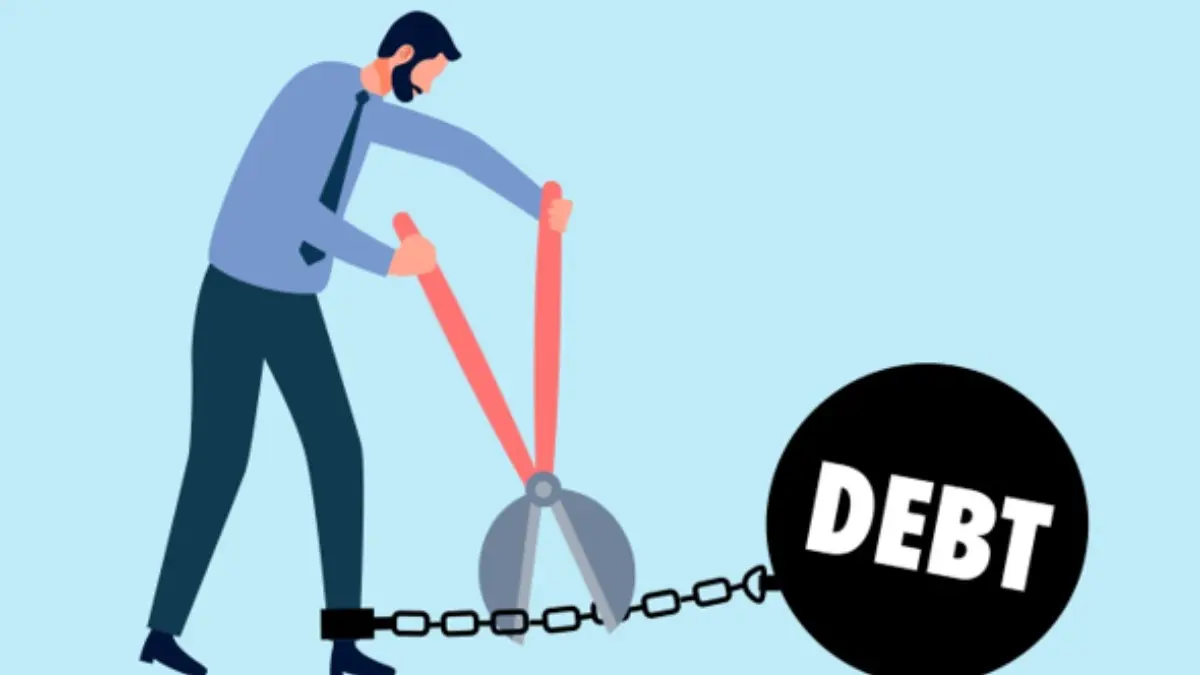Updated 15 April 2025 at 19:37 IST
Debt Trap: Understanding Causes And Lawyer Panel's Advice On How to Get Out of It
In India, weddings are often grand affairs, with families spending beyond their financial capacity to uphold societal expectations.
- Initiatives News
- 5 min read

Debt can be a useful financial tool when managed responsibly, but for many individuals in India, it becomes a trap that spirals out of control. Various factors contribute to financial distress, often leading people into overwhelming debt burdens. Here’s a look at some of the reasons why individuals fall into a debt trap in India and how these situations can be avoided.
Easy Availability of Credit and Predatory Lending Practices
With banks, NBFCs, and digital lending apps aggressively pushing loans, many individuals find it easy to borrow money without fully understanding the implications. Lenders often extend credit without properly assessing the borrower’s repayment capacity, leading to excessive borrowing. Many people fall prey to marketing tactics that promise instant cash, low-interest EMIs, and quick approvals. This easy access to credit, combined with a lack of financial literacy, makes individuals vulnerable to falling into a debt cycle.
Unforeseen Financial Emergencies
Advertisement
Life is unpredictable, and sudden financial setbacks such as job loss, medical emergencies, business failures, or online fraud can force individuals to rely on loans for survival. Without an emergency fund, people have no choice but to turn to credit cards, personal loans, or even high-interest payday loans, which can quickly spiral into unmanageable debt. In India, medical expenses are a significant reason for financial distress, with many families taking loans to afford private healthcare.
Risky Investment Schemes and Online Betting
Advertisement
Many people in India fall into the debt trap due to the lure of making quick money through risky ventures such as Ponzi schemes, chit funds, online betting, or speculative trading in shares and derivatives (F&O trading). Greed-driven financial decisions often lead individuals to borrow money in the hopes of generating high returns. However, when these risky investments fail, they are left with mounting debts and no means of repayment.
Overspending on Big Events Like Weddings
In India, weddings are often grand affairs, with families spending beyond their financial capacity to uphold societal expectations. Many people take out personal loans or use credit cards extensively to fund lavish weddings, expensive gifts, and extravagant ceremonies. Since these expenses do not generate any financial return, they become a financial burden, leading to years of debt repayment struggles.
Credit Card Trap: The Minimum Amount Due (MAD) Illusion
Credit cards offer convenience but can also be a major source of financial distress. Many users fall into the ‘Minimum Amount Due’ (MAD) trap, believing that paying a small portion of their outstanding balance is sufficient. However, this leads to compounding interest rates as high as 40% per annum, turning a small debt into an insurmountable financial liability. Individuals who only make minimum payments often find themselves in a never-ending cycle of debt.
Home Loans Beyond Repayment Capacity
Owning a home is a dream for many Indians, but taking on a home loan beyond one’s repayment capacity can lead to severe financial strain. Many individuals underestimate the long-term financial burden of a home loan, especially when interest rates fluctuate or unforeseen expenses arise. Failing to account for these factors can result in missed EMIs, foreclosure risks, and a downward financial spiral.
How to Avoid Falling into a Debt Trap
While debt can be useful when managed wisely, avoiding financial distress requires careful planning and responsible borrowing. Here are some strategies to prevent falling into a debt trap:
- Assess repayment capacity: Borrow only what you can afford to repay comfortably within your financial limits.
- Build an emergency fund: Set aside savings to cover unforeseen expenses and reduce reliance on credit during crises.
- Avoid high-risk investments: Steer clear of get-rich-quick schemes and speculative trading unless you have adequate knowledge and risk tolerance.
- Live within your means: Avoid excessive spending on luxury items and big-ticket events that can strain your finances.
- Understand credit card terms: Pay the full outstanding balance each month to avoid high-interest charges.
- Plan home purchases wisely: Choose a home loan that fits your income and includes a buffer for unexpected financial changes.
Read This Also: WPI Inflation Eases to 2.05% in March, Down from 2.38% in February
How Legal Assistance Can Help If You Are in a Debt Trap
If you have already fallen into a debt trap, legal assistance can be a crucial resource to help you navigate the situation. Lawyer Panel the leading player in India providing such support including:
- Stopping Harassment by Recovery Agents: Many individuals in India face harassment from aggressive recovery agents when they default on loans. Lawyers can intervene and ensure that lenders follow RBI guidelines and legal processes while recovering debts.
- Negotiation with Lenders: Lawyers can negotiate with banks and financial institutions to restructure loans, reduce interest rates, or extend repayment periods, making it easier to repay the debt.
- Mediation and Arbitration: Instead of going through lengthy legal battles, mediation and arbitration can provide quicker, less expensive solutions to resolve disputes between borrowers and lenders.
- Legal Protection: In extreme cases where a borrower faces threats or illegal recovery methods, legal professionals can help file complaints and ensure that the borrower’s rights are protected.
A debt trap can be debilitating, affecting an individual’s financial stability and overall well-being. In India, where financial literacy is still evolving, it is crucial to be mindful of borrowing habits, financial risks, and lifestyle choices. Financial discipline, awareness, and legal intervention can help individuals regain control of their finances and avoid the pitfalls of unmanageable debt.
Published By : Rajat Mishra
Published On: 15 April 2025 at 19:36 IST
